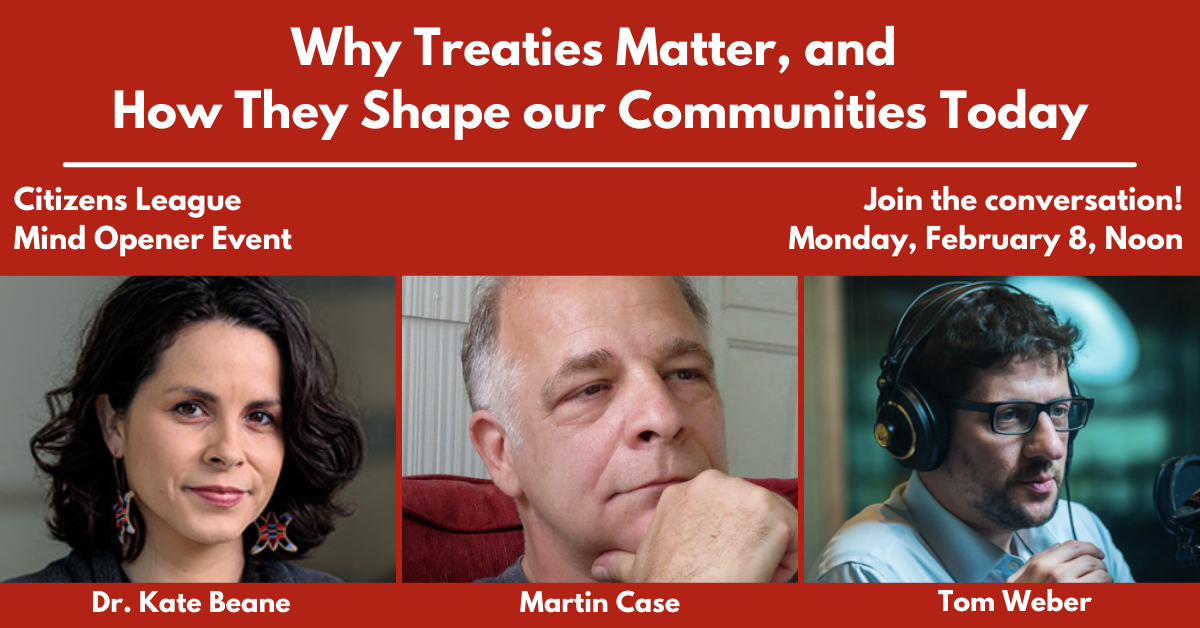
The State of Minnesota exists because of treaties that were signed with Native Americans. In reality, none of those treaties have been fully honored, even though they’re still in effect today. What do each of us need to know about treaties as we live and work in Minnesota today, especially working in policy and politics? Watch below for a primer and a conversation about policies that could be considered to address treaties in Minnesota and create greater opportunities for Indigenous Minnesotans today.
Our Panel:
- Kate Beane (Flandreau Santee Sioux), Director of Native American Initiatives, Minnesota Historical Society
- Martin Case, Author of “The Relentless Business of Treaties: How Indigenous Land Became US Property”
Hosted by Tom Weber.
Panel Bios:
Dr. Kate Beane (Flandreau Santee Sioux), director, Native American Initiatives, Minnesota Historical Society, holds a B.A. in American Indian Studies and a Ph.D. in American Studies from the University of Minnesota, Twin Cities. Previously, she served as a program and outreach manager at MNHS working with Dakota communities across the region. She currently teaches Dakota history at Minneapolis College, serves as a board member for the Native Governance Center, and is an urban Indian advisory board member for the Minnesota Indian Affairs Council.
As the director of Native American Initiatives at MNHS, Beane helps to strategize engagement practices with regional Indigenous communities. She advises MNHS on best practices for incorporating Native perspectives and voices on projects throughout the institution and at historic sites.
Martin Case, Author of “The Relentless Business of Treaties: How Indigenous Land Became US Property,” is an Irish-American freelance researcher and writer, examines political and economic networks that shaped US relationships with indigenous nations, and drove the expansion of the US across the continent. He was on the design team for Why Treaties Matter, a collaboration of the Minnesota Indian Affairs Council, the Minnesota Humanities Center, and the Smithsonian Institute. His book — The Relentless Business of Treaties: How Indigenous Land Became US Property – was published in 2019 by the Minnesota Historical Society Press.
Mind Opener:
Why Treaties Matter, and How They Shape our Communities Today
Monday, February 8, 2021

Tom Weber
Host

Dr. Kate Beane
(Flandreau Santee Sioux), Director of Native American Initiatives, Minnesota Historical Society

Martin Case
Author of “The Relentless Business of Treaties: How Indigenous Land Became US Property”
Citizens League Mind Openers, sponsored by Blue Cross and Blue Shield of Minnesota, are deep dives into policy topics that affect Minnesota and its residents. The talks are an opportunity for people to learn and talk about a variety of different issues.
